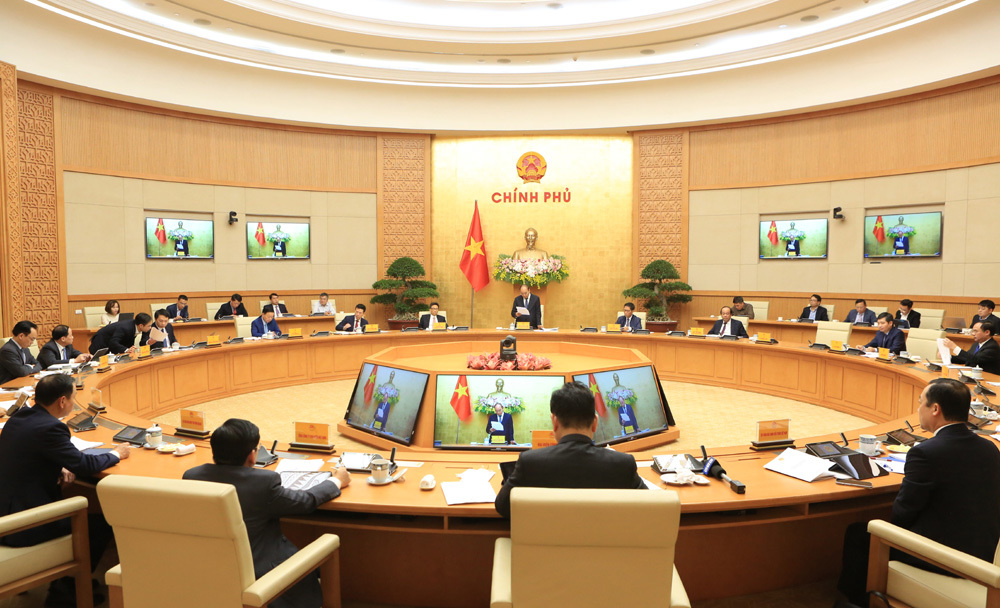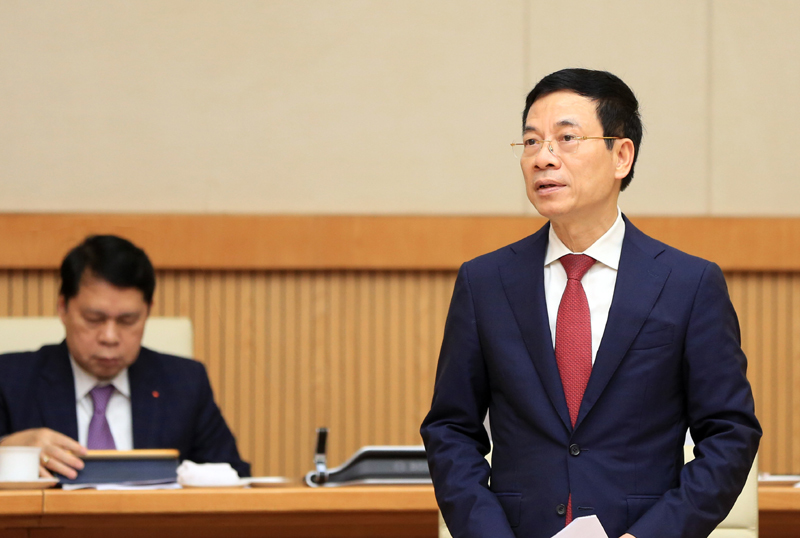Digital government will be formed by 2025, representing a transition from e-government. The challenge will be management of change.
On March 10, Prime Minister Nguyen Xuan Phuc, Chairman of the National Committee for E-Government, chaired the committee’s regular meeting, which focused on reviewing the implementation of Resolution No.17 on a number of key tasks and solutions for e-government development in the 2019 – 2020 period, with a vision to 2025.
Prime Minister Nguyen Xuan Phuc said that the UN placed Vietnam at the 86th position among 193 countries in its e-government ranking in 2020, up two places from 2018. In Southeast Asia, Vietnam ranked sixth.
He said that with the issuance of Resolution No. 17/NQ-CP, Vietnam for the first time has a master plan on e-government, with the focus placed on building institutions and shared platforms.
He said that along with socio-economic successes, the country has seen a bright spot in e-government, especially in 2020. He also pointed out a number of shortcomings in the field, including the incomplete legal environment, and limited ratio of level-4 online public services. In the future, it is necessary to speed up the provision of online public services, and the effective implementation of the national database on population, thus reducing paperwork in administrative processing.
According to the Government Office, one of the highlights in the e-government building of Vietnam in the last two years was the inauguration of the National Public Service Portal on December 9, 2019.
As of March 8, 2021, more than 2,800 out of total nearly 6,800 public services had been provided through the portal at four administrative levels. The portal received over 116 million visits and more than 468,000 registered accounts. More than 940,000 administrative documents were processed online through the portal, while 67,000 e-payment transactions were made with total amount of 26.7 billion VND. T
The portal also received more than 10,000 feedback responses. The portal has helped save more than 8.1 trillion VND (351.53 million USD) each year, along with over 1.2 trillion VND each year in paper and delivery costs.
So far, the national reporting information system has been connected to the systems of 14 ministries and agencies as well as 37 localities, helping save about VND 9.9 trillion each year according to the calculation used by of the Organization for Economic Co-operation and Development (OECD).
According to the Ministry of Information and Communications (MIC), as of 2020, the most important platforms for e-government development of Vietnam had formed and were operating effectively.
Meanwhile, a number of databases for e-government have been built, including the insurance database with information on 24 million families joining health insurance and more than 90 million people covered by health insurance, along with database on businesses, finance, education, health care, and the population. As of December 2020, nearly 40 “Make in Vietnam” platforms built by domestic businesses had been introduced.
Notably, after MIC submitted to the Government for approval the National Digital Transformation Strategy, over 50% of ministries, agencies and provinces developed digital transformation plans and schemes.
5 goals, 6 strategies of digital government
At the meeting, Minister of Information and Communications Nguyen Manh Hung announced that in the first or early second quarter of 2021, the Government will approve the strategy on transferring e-Government to a digital government. This is the first time Vietnam has had such a strategy.
The targets of e-government will be basically completed in 2021, with the focus on reaching level 4 online public services. Vietnam’s digital government will be formed in 2025 and among the world top 50.
Government services will be provided automatically 24/7, on-demand and personalized. New public services will be developed in a timely manner based on open data and with the participation of governments, citizens, businesses and experts. The next step is continual evolution to become a smart government.
According to Minister Nguyen Manh Hung, digital government has a mission to lead national digital transformation, so it must go ahead, take the lead and create a development space for the digital economy and digital society.
The strategy on developing digital government sets out five objectives: providing high-quality public services to the people; mobilizing the participation of people and businesses; optimal functioning of state agencies based on data and digital technology; solving major issues in socio-economic development, such as health, education, transport; making a breakthrough in national rankings.
The strategy also sets out key national tasks: completing the legal environment; developing national digital infrastructure, national digital platforms, national data, and national applications; and ensuring national network safety and security.
Closing the meeting, PM Nguyen Xuan Phuc assigned the Ministry of Natural Resources and Environment to hasten the building of the national database on land, which is expected to be launched in July.
The PM requested ministries, sectors and localities to use public services provided online, while actively sharing their data to other State agencies, and ensuring system safety.
The ministries, sectors and localities should complete the building and launching of strategies, programs and plans in digital transformation for the new period in line with the national digital transformation program, he said, adding that they should maintain online operations similar to what was done during the social distancing period amid the COVID-19 pandemic.
(Source: Vietnamnet.vn)





